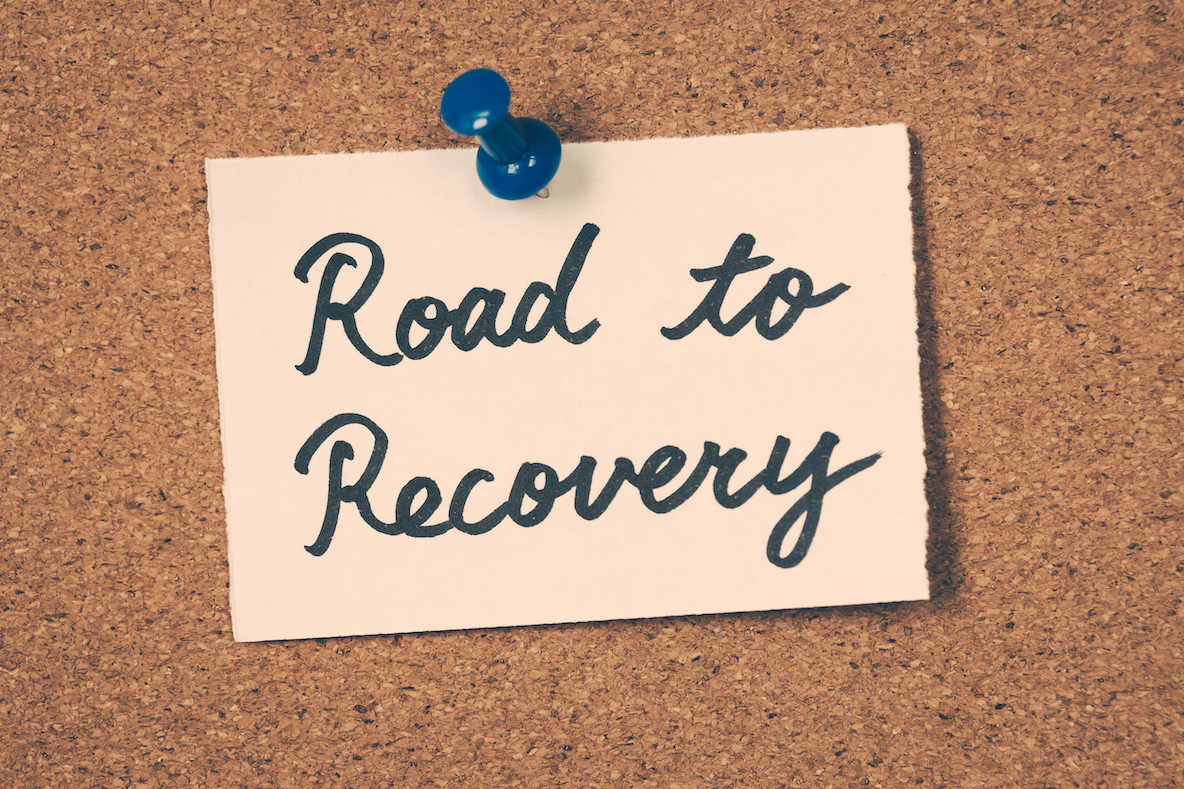Combining Ketamine, Psychiatry, and Psychotherapy: A New Frontier in Addiction and Mental Health Treatment
January 18, 2022
There is a new frontier in addiction treatment gaining attention from researchers and patients alike. It combines ketamine, psychiatry, and psychotherapy to treat addiction and co-occurring mental health issues. Research has shown ketamine to be effective in treating depression, anxiety, and PTSD. By combining it with psychiatry and psychotherapy, emerging research suggests doctors may be able to better help patients achieve recovery.

Addiction is a devastating condition that affects millions of people each year. Furthermore, the link between addiction and co-occurring mental health conditions has long been appreciated. One of the greatest challenges in addiction treatment is helping patients achieve lasting recovery. Most people who suffer from both mental health and substance use disorders relapse at some point during their treatment.
In recent years, researchers have been exploring new ways to treat addiction and co-occurring mental health conditions to enhance abstinence, including combining ketamine with more traditional psychiatry and psychotherapy approaches.
According to a growing body of evidence, ketamine is highly effective in treating mental health issues such as depression, and anxiety, and early research suggests it may have a role in the treatment of addiction. By combining ketamine with psychiatry and psychotherapy, doctors hope to better help patients achieve sustained remission from their addiction. This new frontier in addiction treatment is still in its early stages but offers great promise for helping those struggling with substance use problems.
Ketamine for the treatment of mental health conditions
What is ketamine?
First synthesized in 1962, ketamine is a drug that has been used in anesthesia since the early 1970s. With over 50 years of use as a general anesthetic, ketamine is now being used to treat mental health issues such as depression, anxiety, and post traumatic stress disorder (PTSD). It has proved to be an effective therapy, offering rapid symptom relief that works in hours to days rather than weeks or months as seen with conventional antidepressant medicines.
How does it work in the body?
Ketamine functions in the brain as an NMDA receptor antagonist; it inhibits glutamate neurotransmitter signaling at the NMDA receptors. Chronic sadness and continual stress can lead to sustained high levels of NMDA glutamate signaling in the brain, which causes neuronal atrophy and damage to synapses over time.
Ketamine activates a second glutamate receptor in the brain called the AMPA receptor. The activation of the AMPA receptor stimulates the formation of synapses and signaling pathways in the hippocampus and prefrontal cortex of the brain, which is thought to be essential to its antidepressant efficacy.
The benefits of ketamine therapy for mental health conditions
Antidepressants have been on the market for over 50 years, and their arrival was welcomed as a watershed moment in mental health treatment. Despite this, only 67% of patients achieve a full recovery, with an average of 33% failing to improve in any significant way. Treatment-resistant depression is characterized by a failure of two or more courses of such therapies.
Ketamine treatment has emerged as a promising, alternative treatment to conventional antidepressants. Recent studies have demonstrated ketamine has rapid antidepressant effects in treatment-resistant depression that can last for weeks after as little as a single infusion.
Ketamine’s efficacy as a treatment for mental health conditions is supported by numerous studies showing its effectiveness for treating depression, anxiety disorder, PTSD, and suicidal ideation. A study by Grunebaum et al. in 2018 even showed ketamine significantly reduced suicidality within 24 hours of infusion administration among depressed patients who were at imminent risk of suicide compared to those treated with midazolam.

Addiction and co-occurring mental health conditions
There is a long-recognized link between substance use disorders and co-occurring mental health conditions such as depression, anxiety, and PTSD. Individuals with co-occurring conditions have a higher risk of relapse and are more likely to experience negative consequences from their addiction. Optimum treatment for co-occurring disorders consists of addressing both conditions simultaneously.
Combining ketamine therapy with psychiatry and psychotherapy for better results in addiction treatment
By combining ketamine therapy with psychiatry and psychotherapy, coexisting addiction and mental health conditions can be addressed together. A recent study in the American Journal of Psychiatry demonstrated the superiority of ketamine plus psychotherapy over psychological therapy alone when it came to the percentage of days abstinent from alcohol. This effect persisted at 6 months following only 3 infusions of ketamine.
Research is beginning to uncover the synergy between ketamine and psychotherapy when it comes to treating addiction and mental health conditions. Ketamine is more effective in treating mental health conditions when psychotherapy is also integrated. Early evidence suggests psychotherapy and psychiatry-based treatments of addiction may also benefit from the addition of ketamine therapy.

Addiction treatment: Current and the Future Directions
Standard addiction treatment
The majority of current addiction treatment programs are ineffective, inconvenient, and costly. In fact, the vast majority of individuals with substance-use disorders avoid treatment, unwilling or unable to accept the fixed terms of attending a program (disconnection from family, work, etc.). Worse, among those who do attend a program, the majority relapse at rates approaching 90%, necessitating more treatment and continuing the treatment-relapse cycle that is typical in traditional addiction therapy.
Traditional substance abuse treatment programs last ~15-30 days. Clients are often discharged with a patchwork of inadequately coordinated services when they leave. These services, some of which may not even be available, do not support clients as they return to their normal routines, frequently leading to relapse. In addition, research shows that treatment lasting less than 90 days is as ineffective as no treatment at all.
Front Door Health provides innovative in-home addiction and mental health treatment
Front Door Health was formed to offer in-home addiction treatment that is both more effective and more convenient than traditional treatment programs. Front Door Health employs scientifically based approaches to addiction recovery without causing disruptions to your life.
Treatment at Front Door Health takes place in your real-world environment, where your sobriety will be challenged every day. You stay connected with the positive forces in your life (work, school, family), whereas traditional treatment artificially removes you from family, career, and social relationships. Front Door Health’s multidisciplinary approach combines the most up-to-date, proven medicine and psychology with the ability to adapt treatment in real-time as needs change.
MD Infusions provides ketamine therapy for mental health conditions
MD Infusions specializes in ketamine IV infusion therapy for the treatment of depression, anxiety, and PTSD. Individuals frustrated with years of failed traditional medical therapies now have an exciting new avenue of treatment. Treatment responders will know within a short period, often hours to days, whether ketamine therapy is working for them, as opposed to the weeks or months needed with traditional therapies.
With years of experience treating patients with ketamine, our doctors and nurses provide state-of-the-art care, ensuring your safety and comfort during therapy. Our in-clinic treatments provide private sound-insulated rooms for an undisturbed experience. You are under continuous cardiac and video monitoring for your safety. A doctor is always present to oversee your therapy and answer any questions you may have before, during, or after a treatment session.

K3 Ketamine Treatment Program- a new frontier in addiction treatment
K3 is a new program launched by Front Door Health and MD Infusions offering in-home addiction treatment combined with in-home ketamine therapy.
K3 is administered at your convenience in the privacy and comfort of your home. You won’t have to worry about driving home (which is not recommended) or finding transportation immediately after an infusion. You will experience ketamine in a safe and familiar environment, which can reduce the worry surrounding the infusion process.
K3 prioritizes safety
The very same protocols and safety standards are employed for home therapy as MD Infusions provide in their clinic setting. There is always an on-site nurse and doctor providing your therapy. Mobile cardiac and video monitoring equipment is used to ensure your safety. After you have fully recovered and the K3 Infusions team has left your home, you will receive a final remote check-in from our team to assure your wellbeing.
K3 combines approaches known to work better together
Research demonstrates that ketamine infusions are more effective when integrated with psychotherapy and psychiatry, which many ketamine infusion providers do not offer. Thus, there are huge, missed opportunities to enhance the effectiveness of ketamine treatment. Our treatment team not only makes sure that your ketamine experience is safe and effective, but also provides ongoing therapy and psychiatry before and after sessions to help you process and make the most of these experiences.

Taking the next step!
K3 is a new program being launched by Front Door Health and MD Infusions offering in-home addiction treatment combined with in-home ketamine therapy for those seeking cutting-edge addiction treatment. K3 emphasizes a holistic approach, privacy, and concierge-level service delivered in-home by highly skilled, experienced, and compassionate professionals.
Click here to learn more about our K3 Ketamine treatment program.
If you have questions or you would like to start the process, call 773-747-5500.